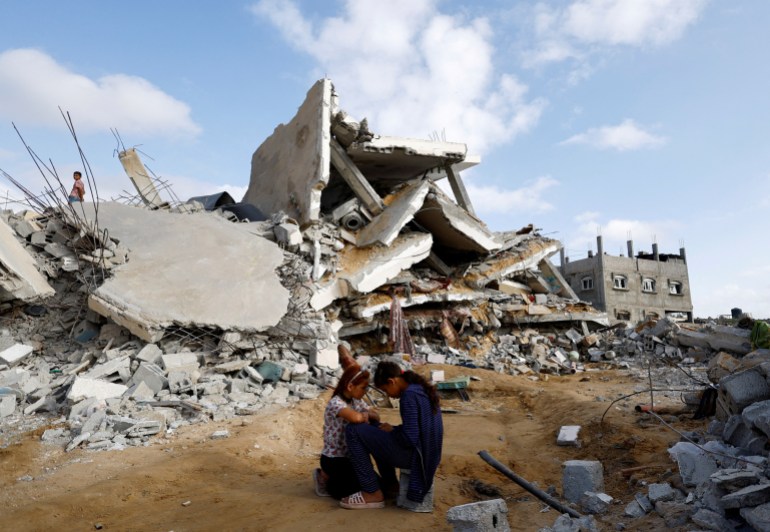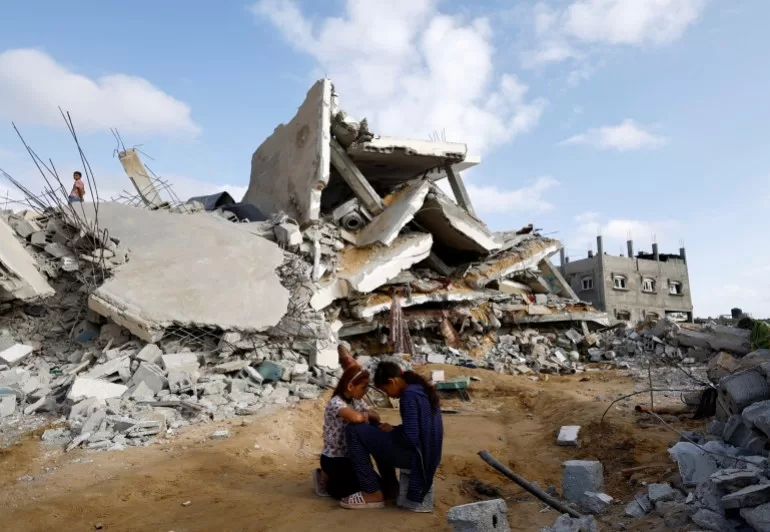Haliva also called for establishing an investigative committee, in what would be a first step towards accountability for failures surrounding October 7.
“The intelligence directorate under my command did not live up to the task we were entrusted with,” Haliva wrote in a letter addressed to the Israeli army chief and published on Monday. “I carry that black day with me ever since, day after day, night after night.”
The 57-year-old, a 38-year veteran of the Israeli military, said he would leave his post once a replacement is found.
He also called for the establishment of an investigative committee to determine in an “in-depth, comprehensive and precise manner” all circumstances that led to the October 7 attack.
On that day, Hamas’s Qassam Brigades launched a surprise assault from Gaza, killing more than 1,130 people and taking some 240 captive. The attack on the southern communities is regarded as Israel’s worst intelligence failure since the country’s creation in 1948.
Israel responded with a ferocious bombing campaign on Gaza that has so far killed more than 34,000 people and displaced most of its 2.2 million residents. It also reduced huge swaths of the besieged enclave into rubble and pushed segments of the population into starvation.
The intelligence establishment has come under enormous scrutiny for failing to see what was coming on October 7.
Israelis want to know why the military was found unprepared despite a reported warning a year before over a potential attack and why it had diverted resources away from monitoring Gaza.
Israeli military and intelligence leaders had dismissed a 40-page document by a senior analyst outlining an assault that turned out to be strikingly similar to the one on October 7, according to the New York Times.
At the time, officials had decided that such an attack was beyond the armed group’s capabilities.
“Something is rotten in the kingdom of Israeli intelligence,” said Yossi Mekelberg, an associate fellow at the British think-tank Chatham House.
Several senior military leaders, including Haliva, took responsibility for the October 7 failures. Still, it was assumed that those busy in the war on Gaza would be held accountable once it was over.
Why now?
It is not clear what led Halavi to make such a move now – with Israel’s assault on Gaza still ongoing, exchanges of fire between Hezbollah and Israel increasing, and tensions with Iran at an all-time high.

But by deciding to resign, observers say, Halavi sent a signal that the time for accountability has come.
“Authority comes with responsibility,” Haliva wrote in his letter, in what some believe was a hint, and an invite, to Israeli Prime Minister Benjamin Netanyahu.
“He wanted to send a personal message to tell him: ‘If I can do it, you can do it’,” says Akiva Eldar, an Israeli author and former editorial writer and columnist for Haaretz.
Netanyahu has refused to acknowledge any blame for the attack and has repeatedly rejected calls to resign.
The intelligence chief’s resignation has added to the pressure faced by a prime minister already accused of not doing enough to bring back the more than 100 captives in Gaza and of dragging the conflict out to save his political career.
“Halavi understood that Netanyahu was not going to end the war in the near future and that he was not interested in bringing the captives back to Israel,” said Eldar.
The question is now whether other members of the security and military establishment will follow in Halavi’s footsteps.
According to Alion Liel, former chief of the Israeli Foreign Ministry, should high-ranking officials such as the heads of the Shin Bet, the southern command forces and the Israeli army chief of staff resign, it would signal to the public that the time for an investigation has come. It would signal the same to politicians.
“This is the beginning of a process – the first step of a long number of resignations needed,” said Liel.
